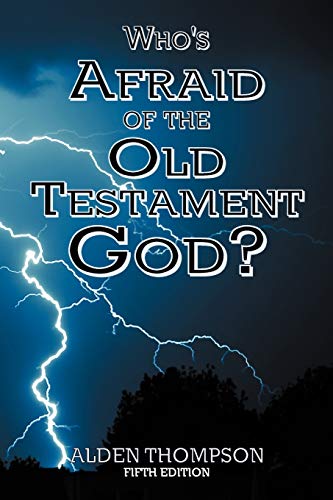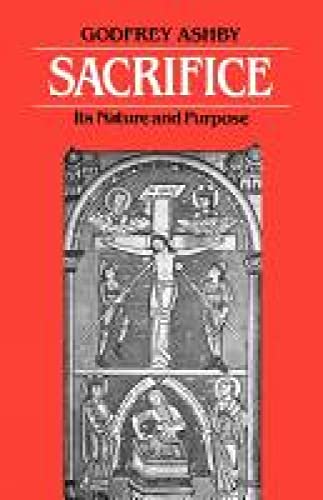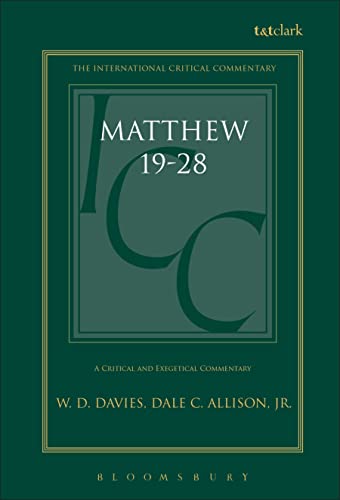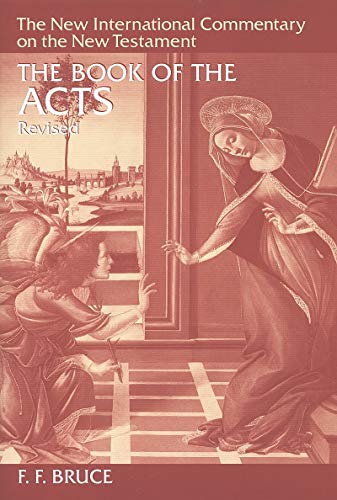Volume 16 - Issue 2
Jesus and the Scriptures: two short notes
By Walter RiggansMark 2:1–12: Jesus and the eschatological prophet
Commentaries on this passage tend to focus, naturally enough, on two of the classic titles of Jesus in the biblical tradition, viz. Messiah and Son of Man. The aim of this note is to suggest that a third title, which is just as significant in Jewish and Christian thought about the Messiah, should be given just as prominent a place in correctly understanding Jesus’ meaning in this famous incident. The third title is that of the Eschatological Prophet, based on Moses’ words in Deuteronomy 18:15, 18. It is my contention that Jesus had this prophecy in mind as he addressed the paralysed man, and that indeed he was equally addressing the whole crowd, Torah specialists and others alike.
Two preliminary remarks are in order at the outset. First of all it has to be said that clear references to this tradition of a great prophet to come in the last days are only to be found in John’s gospel (1:21; 6:14; 7:40–41) and Acts (3:22; 7:37), but lack of specific terminology is not to be regarded as evidence of lack of context. Secondly, it seems to me that the whole Markan pericope reflects a single incident at Capernaum. To relegate verses 5b–10 to later theologizing, as many do, is to miss the context of Deuteronomy 18 in Jesus’ carefully chosen words.
What, then, is the context given by Mark? Between 2:1 and 3:6 he presents us with five episodes of opposition to Jesus’ teaching and miracle-working, each challenge coming from Jewish religious authorities. It is surely right, as most commentators suggest, that what we have here is a record of a delegation from the Jerusalem Sanhedrin sent to investigate Jesus’ life and ministry. One of the Sanhedrin’s tasks was to deal with false prophets, and having heard of Jesus’ increasing reputation, the leadership would rightly wish to observe him at first hand.
On another level we must look at the theological issue of the relationship between sin and personal crisis, whether, as in this case, physical disease, or indeed any other calamity. It is clear from John 9:1–2 that Jesus did not see a one-to-one causal relationship between the two (following, of course, the teaching of Job). The prophets all teach that sin will always result in some crisis or other, but one cannot always work backwards in the same way and conclude that a person undergoing a personal crisis must be being punished for a serious personal sin. Therefore Gould is off the mark when he comments that Jesus simply meets the charge of the Torah experts ‘by showing that forgiveness is here only another name for cure’.1 On the contrary, I believe Jesus is intent on maintaining the distinction between the two ministries of healing and forgiving.
Although Jesus uses the term ‘child’ when announcing the man’s forgiveness, as if he were speaking on behalf of the Father, who is the real Forgiver in biblical tradition, and although that announcement is made in the passive mode (‘Your sins are forgiven’) rather than the active (‘I have forgiven you’), again as if on behalf of another, the Torah experts sense that something more than mere announcement has happened. They accuse Jesus of blasphemy in front of all those witnesses, thereby suggesting that people generally also sensed that Jesus had said something provocative in the extreme.
And so to the words of Jesus. The core of the pericope is verse 9, and surprisingly few of the commentaries note the significance of Jesus’ actual words. He did not ask, ‘Which is easier to do—to forgive or to heal?’ Instead he asked whether it is easier to say to someone that they are forgiven or healed. Cole responds correctly when he notes that ‘it is equally easy to say the two phrases’.2 Unfortunately he doesn’t take the issue as far as it should be taken. Nineham errs here when he supposes that Jesus had no intention to heal the man, doing so only to silence the Torah experts, and he also misses the point when he adds that ‘Jesus took sin so seriously that it is perhaps rather surprising to find him describing its forgiveness as “easier” than healing’.3 Chadwick has noticed the unexpected nature of Jesus’ words as well, but I fear that he has also misunderstood the rhetoric of Jesus when he comments that ‘It is not enough to lay all the emphasis upon “to say” as if with Jesus the ease of an utterance depended on the difficulty of testing it’.4
Let us turn now to Deuteronomy 18, and look at the conclusion there:
You may say to yourselves, ‘How can we know when a message has not been spoken by the Lord?’ If what a prophet proclaims in the name of the Lord does not take place or come true, that is a message the Lord has not spoken. That prophet has spoken presumptuously. Do not be afraid of him. (vv. 21f.)
And so this great prophet spoken of by Moses will be susceptible to testing, like any prophet. To declare, as Jesus did, that someone’s sins are forgiven is to speak a prophetic word (see 2 Sa. 12:13b), just as healing someone is prophetic activity. These Torah experts have come to observe Jesus’ power and, more importantly, to test the source of whatever power he may have (cf. Mt. 12:22–37, where some experts ascribe his power to Beelzebub). Jesus takes them to a biblical context which was probably in their minds anyway, namely Deuteronomy 18:14–22. For this reason he specifically asks which is easier to say. Words are cheap, and even impressive words can come from a charlatan or a heretic. Jesus’ word about forgiveness is untestable though, and so he utters the other—testable—word about physical healing.
When the man is seen to be healed, then the people, including the Torah experts, have serious grounds for trusting Jesus’ authority to forgive sins. (Something the same is being said in John 9, to which reference has already been made. There it is the healed man who defends Jesus as being a prophet since only such a man sent from God could do the healing miracle which Jesus did). Therefore the people in Capernaum can see that in announcing forgiveness Jesus has not spoken presumptuously, and we see them in verse 12 responding not by stoning a false prophet but by praising God for sending such a wonderful prophetic figure.
Mark presents us with two aspects of tragic irony along with the series of five confrontations between Jesus and the Torah experts, and these serve to highlight the correctness of seeing Deuteronomy 18 as a legitimate context for our pericope. The first is this, that according to Deuteronomy 18 a false prophet must be executed, yet after the fifth confrontation in Mark 2:1–3:6, Jesus’ various opponents plot to kill him, even though he has been shown to be a true prophet!
The second ironic aspect which Mark presents is that the false spirits, those who actually inspire false prophets, know and acknowledge Jesus to be the promised one from God. The series of confrontations is bracketed by accounts of an evil spirit who identifies Jesus (1:24), demons who are well able to identify him (1:34), and evil spirits who acknowledge who he is (3:11–12).
And so, although no explicit reference is made to Deuteronomy 18 in this Markan passage, it is my contention that it is an indispensable context for understanding Jesus’ purpose in choosing his words to the paralysed man, the crowd, and the Torah experts.
Matthew 26:11: Sabbath and Passover
In Matthew 26:11 Jesus makes a deliberate reference to Deuteronomy 15:11 in the context of his approaching death at the season of Passover. However, the biblical context of the Deuteronomic passage is that of the sabbatical year. Of particular importance to the Matthean pericope is the practice of cancelling one another’s debts (15:1–11), although other aspects were, of course, the leaving fallow of fields and the releasing of Hebrew slaves. For the purposes of this paper it is not relevant whether or not Israel actually carried out this practice of the sabbatical year. The point is that it was a time of proclamation and celebration of God’s gracious sovereignty over the people and land of Israel.
Human nature would come to resent the loss of revenue resulting from cancelling debts, and so people might be tempted not to give loans in the period approaching the sabbatical year. This attitude is explicitly condemned by God in verses 7–10 of the Deuteronomic passage, and indeed a generous spirit is commanded by God at this time. It is this attitude of generosity and joy which the Lord will bless (v. 10). The reason for this is clearly given: Israel is to remember that she was once enslaved in Egypt before the Lord released her and gave her the gift of a land flowing with milk and honey, a perspective central to the theology and ethics of Deuteronomy, as we see in comparing the two accounts of the commandment concerning the Sabbath. Israel, then, must reflect in her life this gracious generosity of God. If this were the case in practice, then there should be no poor people in Israel (as indeed it says in Dt. 15:4); nevertheless, there are plenty of them, and Deuteronomy 15:11 reflects this sad reality. Seen through Marxist eyes this might be regarded as a cynical and callous attitude, but it was not intended that way in the context, nor in Jesus’ use of the verse.
Deuteronomy 15:11 opens with the term for cancelling debts, shmittah, a term translated by aphesis in the LXX, The Greek word is used in the classical language for both the cancelling of debts and punishment, and also for the releasing of people from captivity. In the NT it is commonly used for the remission of sins (e.g. Mk. 1:4; Acts 2:38; Eph. 1:7; Heb. 9:22), as in fact it is in a verse which comes shortly after our own pericope (Mt. 26:28). Jesus senses his coming arrest and death, and in this poignant episode draws his friends’ attention to the sabbatical year, alluding to the forgiveness of sin—the release from the debt owed to God and the release from slavery to themselves and the powers in opposition to God—which will come about as a result of his death.
And so to the Bethany pericope, Matthew 26:6–13. It is the time of Passover the feast of redemption, the season for especially remembering the exodus, the season which early Jewish tradition said was particularly appropriate for the coming of the Messiah, since his coming would constitute the great and final Redemption (see Mekilta to Ex. 12:42). Jesus is with friends in Bethany, and although there are differences among the gospel accounts of the incident, none is sufficient to detract from the clear thrust of Jesus’ response to the act of devotion shown to him by the woman. All the writers are agreed that Jesus spoke the words of Matthew 26:11.
The consideration of waste of money which could have been given to the poor (v. 9) would have been especially acute in the minds of the disciples and Jesus’ other friends at this time, because of the strong tradition to help those too poor to afford their own wine etc. to buy the essentials for the celebration of Passover, (see Jn. 13:29). However, Jesus says that this act of devotion to him is acceptable, since the woman is in effect anointing him for his burial, which will come soon and be too traumatic to allow for proper arrangements to be made to bury him (see Mk. 15:46; 16:1). It is of some interest to note that there is an old Jewish tradition that in one respect care for the dead can be seen as a higher duty than care for those who are living (Sukkah 49b; Tosefta Peah 4:19).
Jesus’ words in verse 11 are not, then, the mark of callous indifference to the poor. We know from elsewhere of his deep concern for their plight (e.g. Mt. 5:7; 6:2–4; Mk. 12:41–43). His words are simply a recognition of the appropriateness of such an anointing at that time. It must not be overlooked that the immediate context of Matthew 26:6–13 consists of a brief pericope on either side, each of which displays human nature at its worst, thus serving to highlight this example of human nature at its best. In between a self-serving plot to kill Jesus and the act of his betrayal by one of his disciples comes this woman’s pouring out of her devotion for Jesus. The various religious leaders and Judas are seen in their own ways to be weighing up the price of trying to capture and kill Jesus, while the woman refuses to count the cost of her love for him!
At this point it may well be appropriate to say a few words about Luke 7:36–50, a passage which many think is another recension of the Bethany incident. The different concerns seem to favour different incidents, though the two accounts may well have influenced one another in the course of their transmission. It does however seem to me to be significant that at the heart of the Lukan episode Jesus tells a parable about the cancelling of debts (7:41–42), Perhaps this is what led to the mutual influence?
How then do we draw all of this together? Deuteronomy 15 is about the sabbatical year, the time for celebrating God’s sovereignty and salvation power. Debts are to be cancelled and slaves are to be released, and all this is to be done generously and joyfully, remembering that God freed Israel in such a manner at the exodus. At Passover, the season of remembering the exodus, Jesus calls his friends’ attention to the Deuteronomic passage, reinforcing the link. He is the one who has come to deal once and for all with the attitude which prevents genuine care for the poor and disadvantaged. His death at Passover time will make possible the cancelling of mankind’s debt to God, bringing the forgiveness of sin. Sabbatical freedom and Passover redemption surely belong together.
1 E.P. Gould, The Gospel According to St. Mark (T. & T. Clark, 1896), p. 35.
2 R.A. Cole, The Gospel According to St. Mark (IVP, 1961), p. 66.
3 D.E. Nineham, Saint Mark (Penguin Books, 1963), p. 93.
4 G.A. Chadwick, The Gospel Accarding to St. Mark (Hodder & Stoughton, 1943), p. 50.
Walter Riggans
General Director of Churches’ Ministry among the Jews (CMJ) based in St Albans






